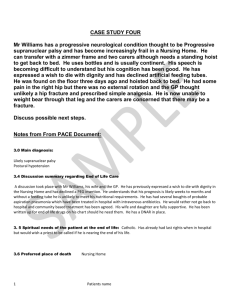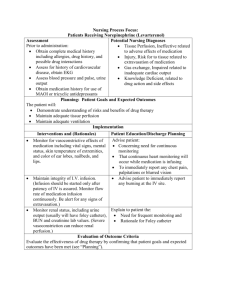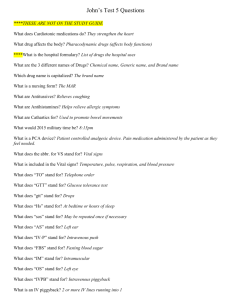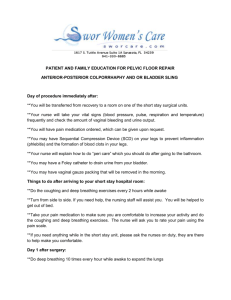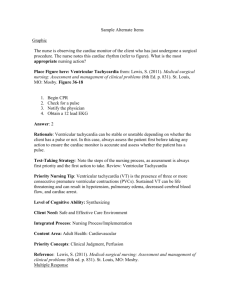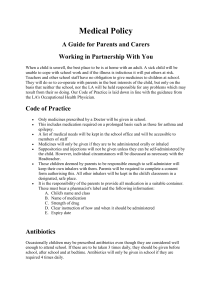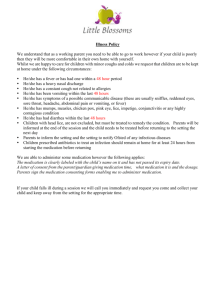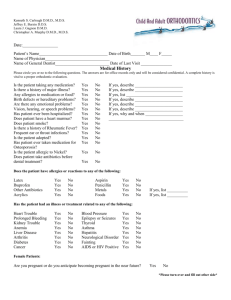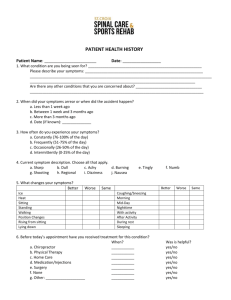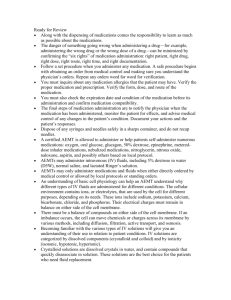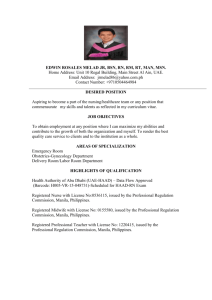Pace 3 - Surrey Care Association
advertisement
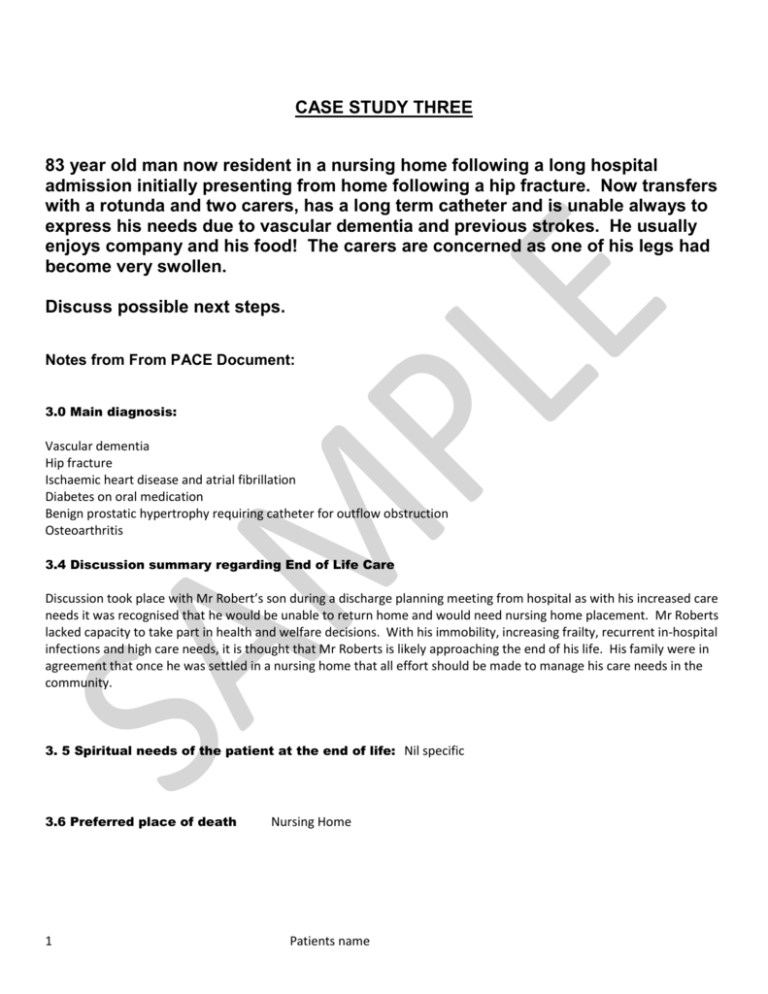
CASE STUDY THREE 83 year old man now resident in a nursing home following a long hospital admission initially presenting from home following a hip fracture. Now transfers with a rotunda and two carers, has a long term catheter and is unable always to express his needs due to vascular dementia and previous strokes. He usually enjoys company and his food! The carers are concerned as one of his legs had become very swollen. Discuss possible next steps. Notes from From PACE Document: 3.0 Main diagnosis: Vascular dementia Hip fracture Ischaemic heart disease and atrial fibrillation Diabetes on oral medication Benign prostatic hypertrophy requiring catheter for outflow obstruction Osteoarthritis 3.4 Discussion summary regarding End of Life Care Discussion took place with Mr Robert’s son during a discharge planning meeting from hospital as with his increased care needs it was recognised that he would be unable to return home and would need nursing home placement. Mr Roberts lacked capacity to take part in health and welfare decisions. With his immobility, increasing frailty, recurrent in-hospital infections and high care needs, it is thought that Mr Roberts is likely approaching the end of his life. His family were in agreement that once he was settled in a nursing home that all effort should be made to manage his care needs in the community. 3. 5 Spiritual needs of the patient at the end of life: Nil specific 3.6 Preferred place of death 1 Nursing Home Patients name 4.0 Assessment Possible Developments specific to the person Action Category Comments (see 4.1 below) Please also see supplementary notes for care e.g.“chest infection” (e.g.” Hospital” home staff (appendix 2) or “Home”) e.g. “oral antibiotics appropriate” 1 Mr Roberts is at high risk of developing Home chest infections Consider oral antibiotics if feverish or unwell. Morphine may help with symptomatic breathlessness 2 Mr Roberts has had recurrent urinary tract infections associated with a long term catheter If becomes feverish, oral antibiotics maybe helpful. Try to keep well hydrated. Catheter needs changing every six weeks. 3 Breathlessness due to heart failure. This Home is usually associated with worsening ankle swelling. May need to ask GP to review his medication. 4 Poor blood sugar control maybe result from infection Home Ask GP to review medication. 5 Serious unexpected event eg Fall and broken bone Hospital Hospital assessment and management of pain 6 Has had several small strokes affecting speech and memory. At risk of having further stroke Home and call GP to consider hospital Can be managed at home and kept comfortable until assessed by GP. 7 Patient has no signs of life. Home Has DNAR form in place Home 4.1Action categories Intensive:Transfer to hospital for treatment if appropriate. Intubation, ventilation etc. should be considered. Hospital:Transfer to hospital for treatment if appropriate. Home:Treatment, medication and comfort measures with support from GP. Comfort:Palliative Medication by subcutaneous, oral or per rectal route, positioning, wound care and other measures to relieve suffering. Admission to hospital would be avoided unless comfort measures fail (e.g.: fractured neck of femur). 2 Patients name
